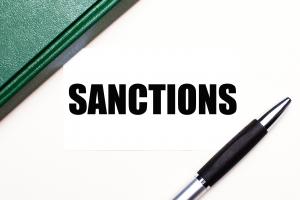
The UK Government has announced a major simplification of its sanctions framework. From 28 January 2026, all sanctions designations will be consolidated into a single official list - the UK Sanctions List (UKSL). This marks an important step in streamlining compliance and ensuring consistency across financial, trade, immigration, and transport measures.
What Are Sanctions?
Sanctions are legal measures the UK uses to restrict economic, trade, financial, immigration, or transport activity with targeted countries, organisations, or individuals. They are a key tool for foreign policy, national security, and international law enforcement. For businesses, the rules are wide-ranging: any company operating in the UK, UK-incorporated or UK-chartered entities trading internationally, and UK nationals abroad must comply. Even companies outside the UK may be affected if they deal with UK customers or counterparties.
Sanctions can take many forms. Financial sanctions might freeze assets or block access to funds, while trade sanctions can limit imports, exports, or the provision of services. Other measures can prevent designated individuals from acting as company directors, restrict travel to or within the UK, or limit the use of certain ships and aircraft. Importantly, sanctions don’t just affect those explicitly named. If a designated person owns or controls another entity, that entity may also fall under the restrictions, whether the control is direct through shareholding or indirect through contractual or operational influence.
Not all sanctions are absolute. Some activities, like humanitarian aid, may be exempt, and in other cases, businesses can apply for licenses to carry out otherwise restricted transactions. Robust due diligence is crucial: companies must know their customers and counterparties, continuously monitor relationships, and ensure they do not intentionally structure transactions to evade sanctions — doing so can carry serious legal consequences.
The UK maintains official sanctions lists, including individuals, entities, and ships. These lists are the cornerstone for compliance, and businesses rely on them, often through automated screening tools or third-party providers, to ensure they don’t inadvertently engage with a sanctioned party. Keeping up to date with these lists and understanding the rules is essential for managing risk and maintaining compliance.
View the Gov.uk Starter guide to UK sanctions guidance.
What’s Changing in 2026: Moving to a Single UK Sanctions List
Currently, the UK operates two separate sanctions lists. The UK Sanctions List (UKSL), managed by the Foreign, Commonwealth & Development Office, covers all types of sanctions under the Sanctions and Anti-Money Laundering Act 2018, including financial, trade, immigration, and transport measures. Meanwhile, the OFSI Consolidated List, maintained by the Office of Financial Sanctions Implementation (part of HM Treasury), focuses primarily on individuals and entities subject to financial sanctions or asset freezes. Over the years, many compliance systems, screening tools, and regulatory processes have relied heavily on the OFSI list and its unique identifiers, the “OFSI Group IDs.”
From 09:00 GMT on 28 January 2026, this dual-list system will be replaced by a single, authoritative list: the UKSL. The OFSI Consolidated List will no longer be updated. Existing designations from the OFSI list will be incorporated into the UKSL, and legacy OFSI Group IDs will be retained for reference. However, any new designations after this date will only have the UKSL’s Unique ID and “Sanction Type,” simplifying identification and data management.
The UKSL will continue to offer its current formats (ODS, ODT, HTML, XML) and will introduce additional formats such as CSV, PDF, and TXT to improve accessibility. The search tool, launched in 2024, will also be enhanced with features like fuzzy logic to make it easier to find relevant designations.
The move to a single list follows a cross-government review, which found that maintaining two overlapping lists created duplication, increased the risk of errors, and imposed additional burdens on businesses. Consolidating into a single list aims to simplify compliance processes, reduce the risk of missing sanctions, and make it clearer for organisations which entities or individuals are subject to restrictions.
View the Gov.uk Moving to a single list for UK sanctions designations, 28 January 2026 guidance.
Reporting a suspected breach of sanctions
The UK government has introduced a new service to help guide anyone looking to report a suspected breach of sanctions to the correct reporting body. Whether you need to notify the Office of Financial Sanctions Implementation (OFSI), the Office of Trade Sanctions Implementation (OTSI), or HM Revenue & Customs (HMRC), the service helps ensure reports reach the appropriate authority. Prompt reporting supports enforcement, maintains the integrity of sanctions, and helps prevent serious financial or legal risks. Certain businesses, including financial institutions and legal service providers, have a legal obligation to report suspected breaches, and failure to do so can lead to civil or criminal penalties.
View the Gov.uk How to report a suspected breach of sanctions page.





